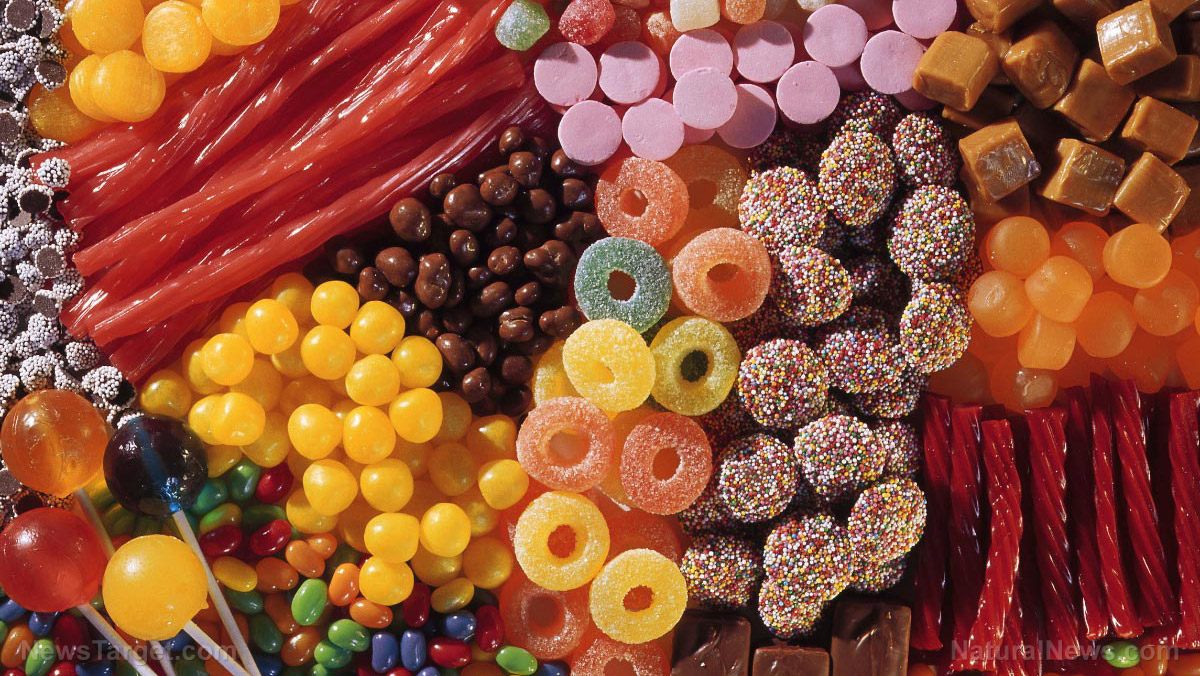Science says there’s no such thing as a sugar rush – it’s actually a “sugar crash”
09/01/2019 / By Zoey Sky

Some people mistakenly believe that consuming sugary snacks and beverages can give them a sugar rush, or increased energy and alertness. However, a study published in the journal Neuroscience and Biobehavioral Reviews warns that sugar worsens your mood and makes you feel more tired.
The study was conducted by researchers from Humboldt University of Berlin, Lancaster University, and the University of Warwick in the U.K.
Sugar rush vs. sugar crash
The researchers investigated the myth of the “sugar rush” and whether sugar consumption has a positive effect on mood. They found that sugar doesn’t improve a person’s mood. In fact, it can make individuals less alert and more tired after consumption.
In the study, Dr. Konstantinos Mantantzis (Humboldt University), Professor Elizabeth Maylor and Dr. Friederike Schlaghecken (University of Warwick’s Department of Psychology), and Dr. Sandra Sunram-Lea (Lancaster University) used data from 31 published studies involving at least 1300 adult participants. The researchers studied the effect of sugar on various aspects of mood such as alertness, anger, depression, and fatigue.
They also analyzed how factors like the quantity and type of sugar consumed might affect the mood. Additionally, they studied if engaging in demanding mental and physical activities changes the effects of sugar consumption. (Related: An hour is all it takes: Drinking a can of soda ‘overloads’ the body with sugar and damages it in just 60 minutes.)
The researchers found that, regardless of how much sugar is consumed or whether or not the participants engaged in demanding activities afterward, sugar consumption has almost no effect on mood.
The volunteers who consumed sugar felt more tired and less alert than those who didn’t. These findings debunk the idea of a “sugar rush.“
The researchers hope that their study can be used to dispel the myth of the “sugar rush.” They also hope that it can encourage people to minimize their sugar consumption for the sake of their well-being.
Mantantzis, who led the study, says the notion that sugar consumption can improve mood has been widely influential in popular culture. This has resulted in individuals around the world consuming sugary beverages to become more alert or prevent fatigue. Unfortunately, the study shows that these claims are unsubstantiated and that sugar makes people feel worse.
Sunram-Lea concluded that the increase in reports of diabetes, obesity, and metabolic syndrome in the last few years emphasizes the need for evidence-based dietary strategies to promote a healthy lifestyle.
Tips to cut sugar from your diet
It can be difficult to reduce your sugar intake if you love sweet snacks and beverages. But if you want to improve your overall well-being and maintain a healthy weight, follow these tips to cut down on sugar.
- Avoid sugary breakfast foods like jams, pancakes, and waffles. Instead, eat healthier alternatives like avocado toast, boiled eggs, and oatmeal with fruit.
- Limit your intake of sugary drinks like soda and fruit juices. Opt for low-sugar beverages such as fruit-infused water, fruit or herbal teas, and black or flat white coffee.
- Avoid sugary desserts like cakes, cookies, doughnuts, ice cream, and pies. Choose healthier alternatives like dark chocolate, a piece of fresh fruit, or plain Greek yogurt with cinnamon.
- Avoid processed foods like pizza and soft drinks full of added sugars, artificial flavors, and other additives. Instead, prepare meals using whole foods like fish with herbs, spices, and olive oil.
- Don’t buy groceries when you’re hungry. Buying food on an empty stomach means you’ll be tempted to buy high-calorie, sugary snacks, which can be bad for you in the long run.
Follow a well-balanced diet and avoid a sugar crash by limiting your intake of sugary snacks and beverages.
Sources include:
Submit a correction >>
Tagged Under:
added sugar, alertness, artificial sweeteners, diabetes, diet, fight obesity, ingredients, mental health, metabolic syndrome, mood, obesity, research, science, snacks, soda, sugar, sugar consumption, sugar crash, sugar rush, sugary drinks, sugary snacks, sweeteners, toxic ingredients
This article may contain statements that reflect the opinion of the author
RECENT NEWS & ARTICLES
COPYRIGHT © 2017 FOOD SCIENCE NEWS



















